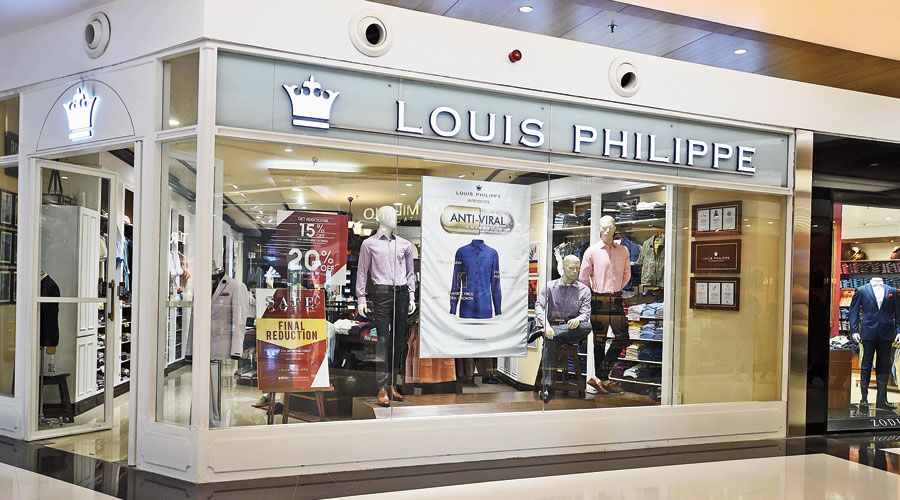Crisp shirts stacked up on shelves. A neatly pleated trouser has a sole taker — the mannequin near the entrance.
Sale of formal clothes has nose-dived at apparel stores across the city. Retailers attributed the plunge to “work from home (WFH)” — the new normal in the wake of the pandemic.
Occasionally, for a virtual appraisal or a client pitch, the odd white shirt makes it out of the cupboard. It is paired with shorts, which passes off unnoticed on a screen.
Sumit Khemani, who works at a south Calcutta store of a menswear brand, has been calling up people who were regular patrons before the pandemic to inform them of new arrivals.
The stock response he gets: “What is the use? I am not stepping out for work. Let me know if there are new shorts and tees.”
Kunal Kapasi, of another premium menswear brand’s Shakespeare Sarani store, used to sell “over 300 formal shirts” a month on average earlier. Since April, he has been selling “much less than 100”.
Trouser sales have gone down sharply, Kapasi said. Usually, three to four shirts sell for every trouser, retailers said.
Apparel brands, like most other segments, are trying to jump the safety-first wagon to tide the Covid crisis, said marketers.
Many brands have started promoting “anti-bacterial” and “anti-viral” shirts.
“This shirt kills 99 per cent of the Covid-19 virus,” reads a pamphlet at a store near Camac Street.
“Inhibits virus and bacteria growth,” reads another poster on the glass wall of a premium apparel store at a Lake Gardens mall.
“The pandemic has made everybody insecure. The brands are trying to capitalise on this insecurity. An added layer of perceived safety is the USP of a host of products — from switchboards to mattress covers. Apparel is no different,” said an advertising professional in Bangalore, who has handled the campaigns of leading lifestyle retail chains.
The formal womenswear corner at an international retailer’s store in a city mall had one person on Saturday afternoon — a sales executive brushing a series of striped blazers. “A weekend two months before Puja there used to be a mad rush. But there is hardly anyone now,” he said.
Womenswear has been the major driver of growth in the formal clothing segment for the past several years, in keeping with the growing role of women in the workplace, said advertisers and officials of apparel companies. The pandemic has put brakes on this as well.
Officials of leading apparel brands said the plunge in sales was not without reason. “I work for a formalwear brand. I have not worn a formal shirt more than once or twice in the past four months,” said a senior official of a leading Indian fashion brand.
The “anti-bacterial range”, he said, was targeted at people who still had to step out — bankers, sales professionals and so on.
“Apparel companies are now concentrating on homewear — shorts, t-shirts. That is the only segment that has been getting some traction. Buttoned waistlines in trousers are being replaced by elastic waistlines and joggers,” he said.











